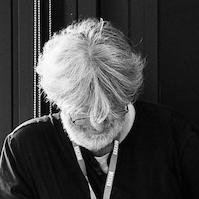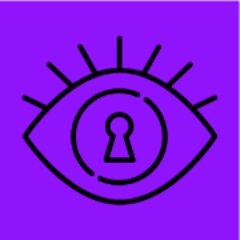Public Service Internet notes
I'm currently ensconced in BBC R&D - I used be head of the Archive Development partnership team - but what I want to do is use IP based servce to make society better, rather thna just making broadcasting better
I was an editor with Global voices, changing the balance of power about who gets to make history.
More recently I have been thinking about what went wrong with the internet, and worked with Mozilla on the Internet Health Report
we want to help people navigate the minefields and find the places where the internet is still an opportunity - how the internet adapts to our choices and how we measure what is going wrong
there are a lot of things going well wiht the interenet despite a lot fo us being down on it now https://internethealthreport.org/
the mission of public service broadcast was never just to make TV programs, but to do more
not just in the UK, but in Germany and Denmark, public broadcast is discouraged from doing anything on the internet as it is competition with commercial entities and this is stunting progress
What are the values that resonate for you?
Inform and educate matters
broadcast started with great ideas and was about public service, but it has become about broadcasting
Ultimately this is all about trust and how trusts transcends these forms
Funding is key too - whose role is it to pay for these things? It is the consumer that pays for the internet- why isn't it free
the internet started out as a cooperative where everyone paid for their piece of it
the BBC was not created ot make radio and television programmes, but to deliver the goals of Educate, inform and entertain - radio and TV are no longere th ebst way to achieve these goals
Is the BBc's understanding of an internet that serves the public good the same as everyone else's - it's not clear if our perspective will scale
I was profoundly effected by Larry Lessig's book Code - that code is law, and we can change it. It's not the messiah, it's just a very naughty network
why is the conversation happening now, who is the we and who is the they?
I'm worried about the global dystopian surveillance society, and anyone who reads the newspaper can see this now - free speech, freedom of movement everything is at risk
No-one says that "the medium is the message" any more, but it is still true we need to see
I mostly work with US government funding in media access - we want to make it independent and viable
this reminds me of the history of the london underground where each line was owned by a separate company, before we realised that public ownership made sense
I'm from canada- the canadian govt made internet access a basic right, but it didn't change much?
Access to what - today's interent si no always healthy
one is about equity - everyone having access, but also a commons, a collective good
What internet are we talking about? facebook and surveillance, about access to IP routing ot about where computers are on borders
All the way down the stack - I think we need to rewrite TCP/IP to build a stack with public service virtues
It's access, infrastructure, how it works - all the layers
If it was functioning well, how woudl we know?
Trust and confidence - it would be significantly harder for anyone other than state actors to subvert what you are routing to
the sorts of things that you end up building to make a public service internet can also enable surveillance
were you prorposing to blow up capitalism?
I think we do need to woarry about nation state actors as they have clearly been working to subvert the publci internet values
can we just get rid of the web?
the web isn't the problem, we have a parallel app economy that defines an overlay on it that undermines its values
freedom and security are 2 things we need - the more you protect free speech, the mroe you allow crime at speed - fraud at unprecedented scales
when you are thinking about the kinds of things we want to protect - we may not like having 10 different apps to talk to people, but that canbe undermined by governments too
is it an either/or or a yes and? Who should be at the table - how do we not use language to mean different things?
you need to have politics, technology and civil society in the room, people how see things form different sides
you also need to bring in the people who don't see the benefits - if they are building silos or benefiting politically from them
you . don't want to pitch this as an alternative to, but a choice - you can choose the existing chaos
build something that can grow through use ratehr than be imposed
the growth of people joining the internet has dramatically slowed - the last half of the world is getting online more slowly, and people left out are disproportionally rural poor and women
Should be public service internets - you decide how much you give up
there is ggin to be contradictions in the way we define the public
we touched on this- the question of scope of public matters - is it a utopia we live in, or is it about the commons - getting to that is key
it's about the roadmap - small and successful first then the roadmap is more ambitious
the values we put up a couple of months back have not been validated -they are working hypotheses to be tested
we need to start from somewhere - write then edit
the values we talk about here https://www.bbc.co.uk/rd/projects/public-service-internet are about making life better
our 4 principle are Public-Controlled Data Equal Access for Everyone A Healthy Digital Public Sphere and Public Service Networking
borders and boundaries matter too - does the BBC see it ending within its own border? Does the World Service matter too?
sometimes public services have competing interests - do I take a bit of Deutsche Welle, RTA and BBC is it just about the country
The BBC has a great desire to find something else to replace their vanishing business model
there are multiple publics - not a public and we need to bring them all in
we're trying to engage in a conversation about what a public service internet should be because the BBC needs it, but the rest of us too - we have some convening power to bring people in
do we need a decentralised organisation rather than a centralised one like the BBC?
I want to hear how other organisations are talking about public service - it's not something I hear in american conversations
the first thing that will be useful to get outof today is whether "public service internet" is a useful way of modelling
I want to go all the way to a decentralised web of mutual currencies - do we want that
it needs to be a network that people have chosen, not enforced
its important to have those out there topics as well as thinking about what internet you would like to see
A big question I always have is what the user experience implications are
what would a public service email service look like - the same for social media - what does that look like?
I think it looks like indieweb.org tbh
the BBC built an ISP in the 1990s
 Bill Thompson liked this 7 years ago
Bill Thompson liked this 7 years ago Lauren Bacon liked this 7 years ago
Lauren Bacon liked this 7 years ago MozFest Privacy & Security liked this 7 years ago
MozFest Privacy & Security liked this 7 years ago fitwigt liked this 7 years ago
fitwigt liked this 7 years ago Rhianne Jones liked this 7 years ago
Rhianne Jones liked this 7 years ago william ricker liked this 7 years ago
william ricker liked this 7 years ago